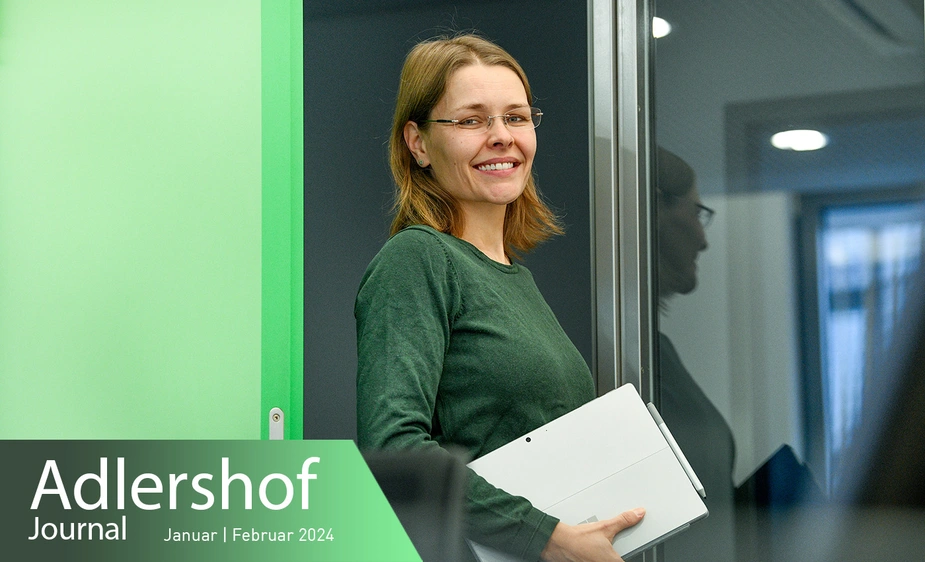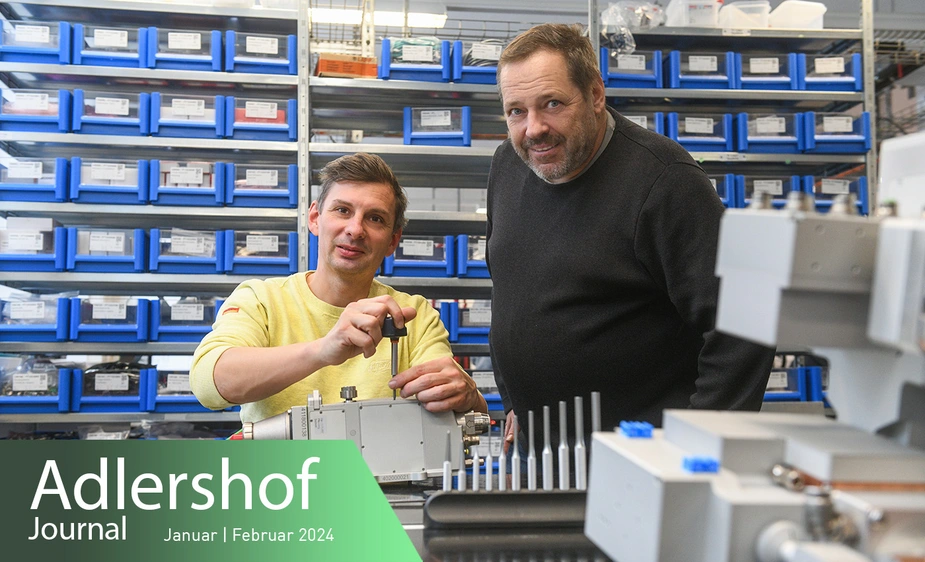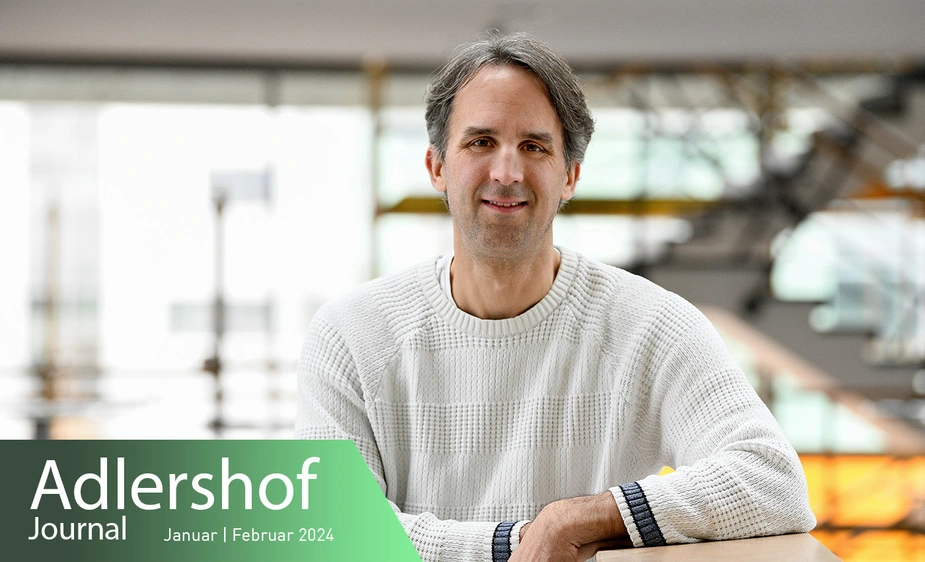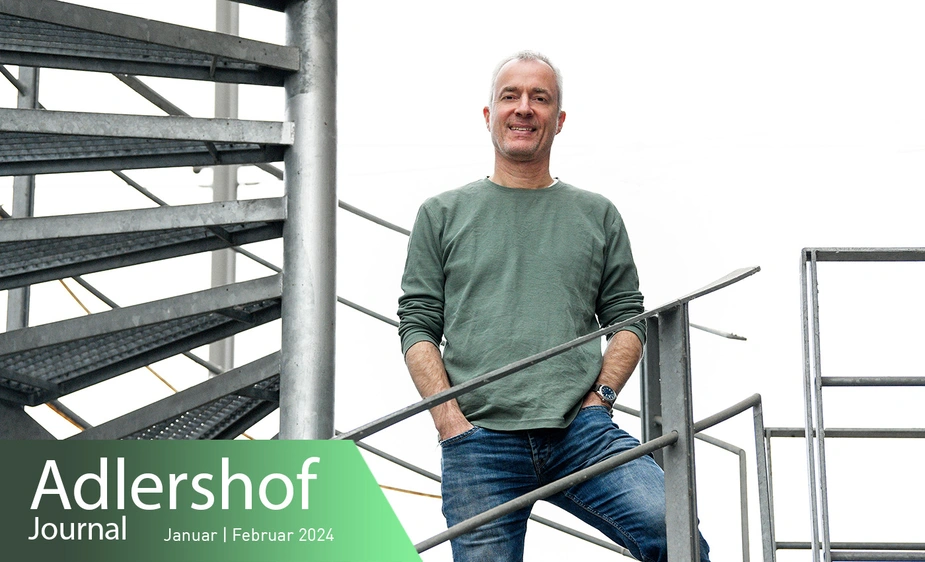Finding and retaining talent
It’s not as easy as it sounds. Germany is creaking under the strain of a shortage of skilled workers, while demographic changes are only just gathering momentum. How are Adlershof’s research institutes and companies dealing with this?
Sentech Instruments GmbH is growing substantially and therefore needs more high-skilled workers, especially engineers. However, there is a problem. It seems as though the market has been swept clean. “I have been recruiting staff for ten years,” says Cordula Krüger, head of HR at Sentech. “My work has changed fundamentally.” Before, the four job openings currently available at the company would have been quickly filled by advertising them on the company website. This is unthinkable today.
And so, Krüger uses every conceivable channel, including recruiting on large national job portals like Stepstone and posting on social media channels like LinkedIn. She also goes directly to universities and hires headhunters. Existing Sentech staff can now receive bonuses for recommending new colleagues. Krüger’s line of work has become much more difficult. This is especially the case for commission engineers, who are of paramount importance for machine-building businesses because they assess machines rigorously before they are sent out. “For that, we need mechanical engineers with a background in physics,” explains Krüger. A rare species.
The picture for non-academic staff is brighter. Only recently, Krüger was looking for two packers who were not only available, trained, and experienced, but also wouldn’t confront the firm with excessive demands. With younger, highly-skilled workers, this is something the HR manager is now frequently confronted with—very high salaries and work-life balance seem to be more important to them than the task at hand. Which does little to convince Krüger. “I would appreciate it if applicants applied some realism and prioritised enjoying the work,” she remarks.
“We have had a similar experience,” says Björn Wedel, managing director of PT Photonic Tools GmbH. He also emphasises that “we continue to be successful in finding, retaining, and inspiring very good staff with the exciting and challenging activities that our global clientele offers.” Specialised in ultra-short, high-performance laser components, the company needs to fill about a dozen openings—from engineering, through sales, to assembly. To do so, they need time and invest many resources. Gazing into the future, Wedel is worried: “It’s a real obstacle for growth, not only for us but for the country as an economic location.” He becomes a tad apprehensive when he looks over to the labour markets in China and India: “They have a very different mentality there.”
Looking to Adlershof, Wedel says: “We hope that word gets out about the career opportunities we offer and how fascinating photonics are on the campus so that as many Adlershof graduates as possible find their way to Photonic Tools.” Like the ones from the nearby Humboldt-Universität zu Berlin (HU) where Professor Ulf Leser teaches. “For anyone interested in computers and a secure and well-paying job, I recommend studying computer science,” says the vice dean for research of the Faculty of Mathematics and Natural Sciences of HU, who is also the spokesperson for a special research centre for big data in the natural sciences. “Employers are lining up to snag our students.” And this is despite the current economic slump.
Today, the shortage of skilled workers is also being felt at the universities themselves. The number of people applying for a doctoral position has fallen significantly in recent years, Leser reports. The often excellent conditions for doctoral students in computer science, including at least three-year contracts and a typically high salary, couldn’t prevent this from happening. The widely lamented and alleged precarious conditions for employment in research and academia certainly don’t apply at the Department for Computer Science in Adlershof.
Even with just a bachelor’s degree, job prospects are very good—roughly a third of BA graduates directly enter their first job. When BA students are courted by companies early on, many don’t follow up with a master’s degree. “This is something where we don’t have to get active. The students do not approach the institutes about possible offers from the industry. Instead, they enquire how to graduate quicker, because they have already signed a job contract,” says Leser. Many students are now entering the workforce so quickly that they write their final theses while working.
However, very few stay on campus. The situation is different in subjects like chemistry, physics or geography, where graduates have excellent career prospects—with companies and research institutes on the campus: “Adlershof-based companies have direct access to talent”, says Leser with emphasis.
Christoph Scherfer of the Postdoc Office at Helmholtz Zentrum Berlin für Materialien und Energie (HZB) is one of the people ensuring this. He supports the more than 100 postdocs at HZB with entering the professional world. He does so through in-house training, creating contacts with companies and visiting them, and through WISTA Management GmbH’s networking schemes like the Adlershof Campus Club or a recently-set-up, three-month, on-the-job training programme in cooperation with the industry. After all, not everybody will be able to pursue a career in academia simply due to the lack of jobs and not everybody has the research qualification needed.
“We support postdocs in acquiring these skills for a range of career paths, which include academic research, the industry, founding a business, working in research management, or science communication,” Scherfer explains. Seeking qualification in project management and leadership skills, for example, has proven valuable, because these are skills that are sought-after in many occupations. “Moreover, direct insight into the work of private companies is important—it broadens the horizon for more potential career paths,” says Scherfer with emphasis. “In addition to guest lectures and company visits, we promote these insights through post-doc job shadowing.”
Faced with a different way of thinking in the private sector, researchers sometimes have to adjust. There, an orientation towards products and profits is at the top of the agenda. “When post-docs already have contacts with private companies, this transition typically works very well,” say Scherfer from experience. This is another reason why he advocates for more company contact and cooperation. Creating better matches helps to alleviate the shortage of skilled workers a little bit. Thanks to these efforts, the alarm bells are sounded a bit less loudly in Adlershof compared to other places.
Chris Löwer for Adlershof Journal



